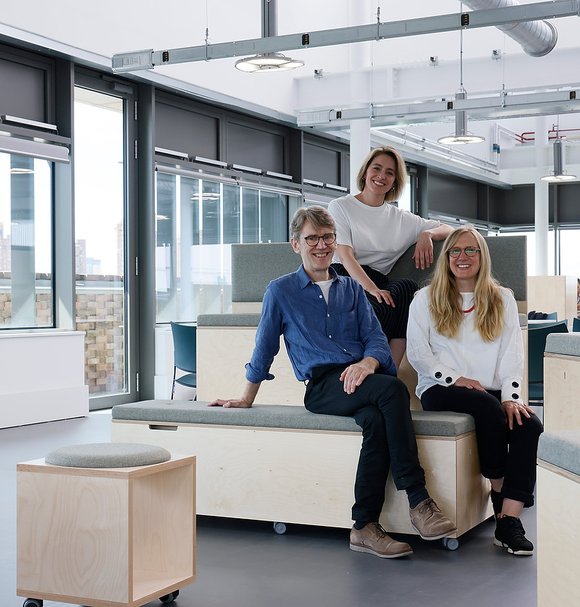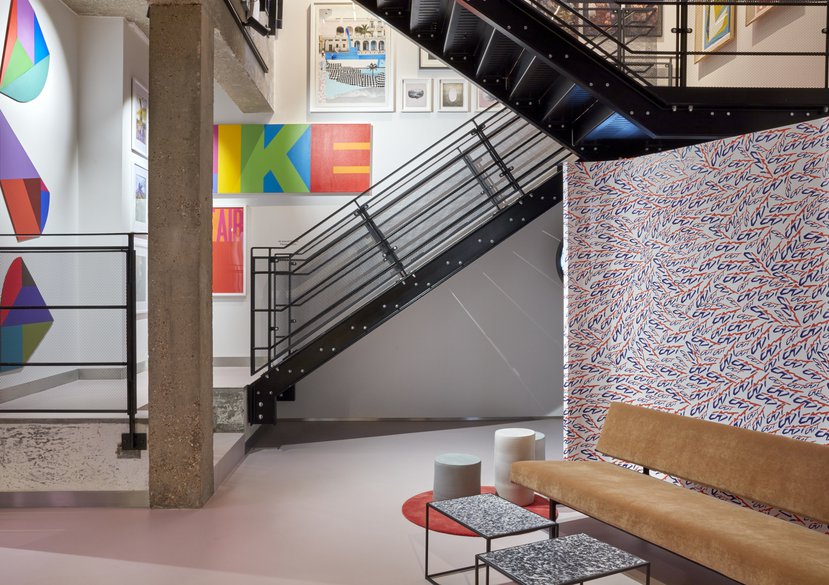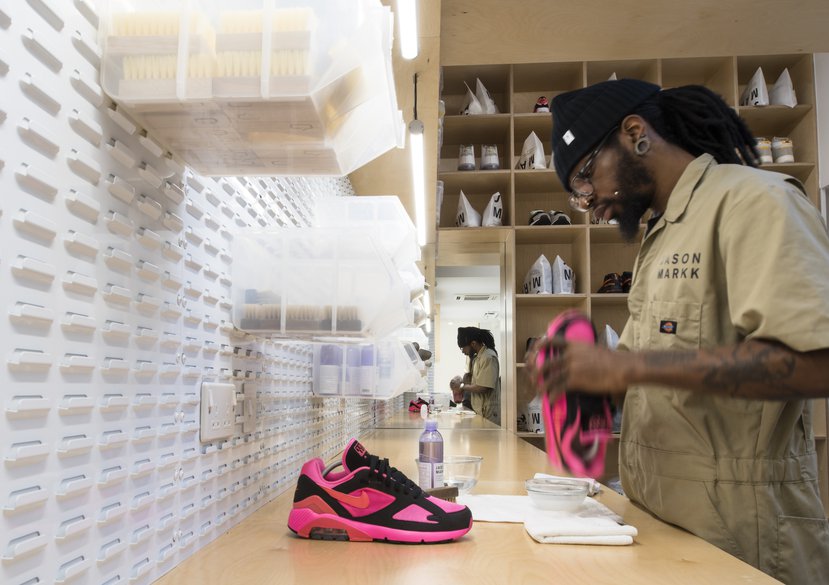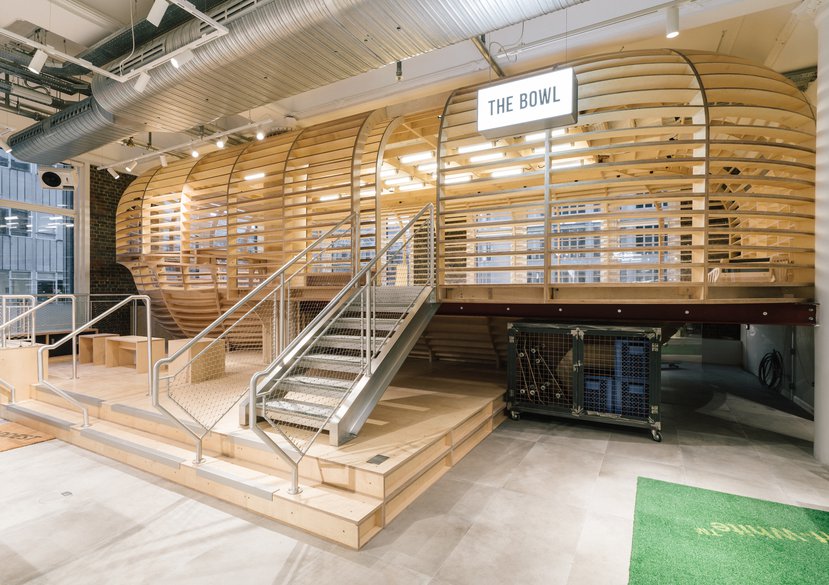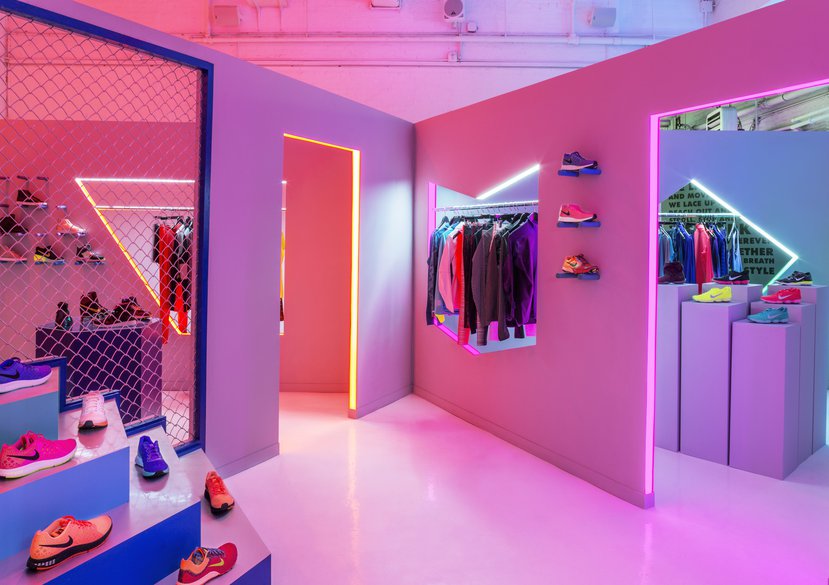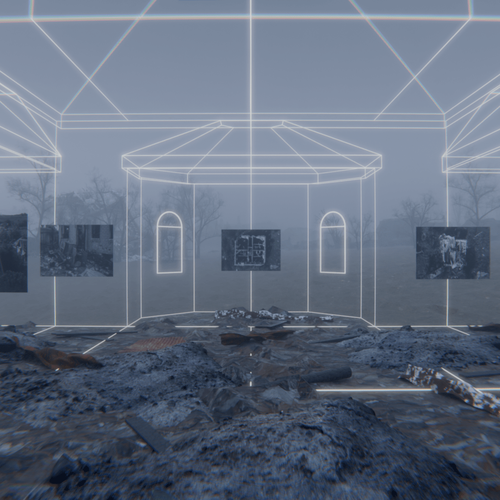
An interior design short course exploring the forces shaping future retail environments.
This intensive online interior design short course, developed by esteemed academics from the Interior Design MA programme, examines the forces shaping the retail environment of the future and identifies opportunities for innovation in a post-Covid world.
Retail interior design reflects and responds to cultural change and must evolve rapidly to meet current trends and desires. This course will help you understand some of the key challenges faced by retail and the opportunity for radical rethinking in areas such as:
- customer experience and brand engagement
- sustainability agenda, materials and practice
- new technologies and hybrid retail experiences
- retail aesthetics
- consumer behaviour
You will connect with a group of global participants and enter into a packed programme that includes guest lectures from specialist retail professional practitioners and practical workshops that relate to the following themes:
- Street (threshold between the inside/outside)
- Future online relationship (frame)
- Future brand engagement/interface (materials)
- Future consumer needs (behaviour)
You will apply these insights and advance your knowledge by working on a collaborative team project supported by RCA academics.
The course reflects the RCA experience with small class sizes and rich interaction between students and academics, provoking discussion and inspiration, and developing industry skills within a supportive and creative learning environment.
About the course
Course Structure
Session 1
- Introduction and welcome
- Lectures from RCA Interior Futures academics
- Participant presentations (Pecha Kucha)
- Workshop Introduction and short project brief
Session 2
- Street (threshold between the inside/outside)
- Lectures from RCA Interior Futures academics
- Lectures from special guest speakers
- Workshop
Session 3
- Future online relationship (frame)
- Lectures from RCA Interior Futures academics
- Lectures from special guest speakers
- Workshop
Session 4
- Future Brand Engagement/Interface (Materials)
- Lectures from RCA Interior Futures academics
- Lectures from special guest speakers
- Workshop
Session 5
- Future consumer needs (behaviour)
- Lectures from RCA Interior Futures academics
- Lectures from special guest speakers
- Workshop
Session 6
- Introduction to crit panel
- Finalisation of projects
- Final team project review
- Sum-up and conversation with guest speakers
Personal and organisational benefits
Benefits to you and your organisation include:
- insight into global best practice in retail design
- experience in critical, creative and insightful thinking
- return to your practice with a greater ability to innovate and connect to retail design trends
- connect with global participants, share knowledge and experiences
- certificate of achievement on completion.
What will you learn?
You will learn:
- how to research and question current retail practice that might lead to testing, rethinking and reworking the retail experience in an intensive and challenging design project
- creative and conceptual thinking relating to current trends in retail to translate ideas into practical spatial designs
- how to plan and think about customer experience and engagement
- about some of the key challenges faced by retail and the opportunity for radical rethinking.
How will you learn?
You will participate in:
- action-based practical tasks
- collaborative, iterative teamwork
- extended lectures delivered by expert RCA academics and special guest speakers
- project workshops
- opportunities to network with visiting retail designers and
- peers on the programme.
Online delivery
The course is organised in synchronous sessions in a live virtual environment that combines various digital platforms and tools.
Zoom
Using the videoconferencing service Zoom, the RCA's esteemed academics and facilitators deliver a mix of:
- live lectures
- case studies
- guided assessments
- presentations
Participants interact with the faculty and peers in breakout rooms in real time.
Miro
Participants engage in cross-functional team work with the use of visual collaboration tools.
Through the online whiteboard platform Miro, participants get to:
- interact with various formats and templates
- plan and brainstorm ideas
- create processes and workshop activities in the digital workspace
Moodle
The College's learning platform Moodle is personalised according to the course's requirements to provide participants with a secure integrated system where they can access the course content.
The hub hosts a range of useful resources to enable the learning experience, including comprehensive timetables, pre-reading materials, course slides, curated videos, tutorials and session recordings.
Slack
Participants stay connected and communicate via the channel-based messaging platform Slack throughout the whole duration of the course.
In this space, the academics, facilitators and delegates get to network, plan the course activities, share documents and files during the live sessions or offline.
Course outcomes
Participants will:
- explore Future Retail in the post-Covid context
- examine the topic, culminating in team presentations debated by the group, RCA academics and guest lecturers
- learn how to research and question current retail practice
- learn how to plan and think about customer experience
- learn how to engage customers by using advanced retail design communication in spatial environments
- develop industry skills within a supportive and creative learning environment
- network with RCA academics, guest lecturers and peers
Who should attend?
- interior designers, architects and other spatial designers
- retail designers
- retail industry professionals
- window-display specialists
- stylists
- merchandise designers
- exhibition designers
- commercial design practitioners
- fashion industry professionals and fashion retail enthusiasts
- XD/user-experience designers.
Guest speakers
Previous specialist retail professional practitioners included:
Robert Storey founded StoreyStudio in 2009, a spatial design practice based in London comprising a diverse team of designers and artists working fluidly between creative disciplines. The studio is led by British creative director Robert Storey who studied fine art sculpture at Central Saint Martins. His work is known for its artistic approach and has been called upon by an ever-expanding international client list including Prada, Hermès, Chloè, Kenzo, Stella McCartney and Nike. He is a Platform Tutor on Interior Design at the RCA.
Simon Mitchell co-founded Sybarite in 2002 and now in their 19th year have delivered over 2,000 retail locations from monobrand stores through to large scale shopping malls, cinemas and most notably the largest luxury department store in Asia by size and turnover SKP Beijing & SKP Xi’an. Simon has over 25 years’ experience in retail design; his attention to detail and sincerity in understanding the depth of a brand is reflected in all his projects.
Peter Higgins is Creative Director Land Design Studio. As an architect and has worked as a designer for the BBC, in West End Theatre, for Imagination and formed Land Design Studio in 1992. Subsequently, Land have built an award winning experiential design consultancy working in both the cultural and commercial domains. Clients include The British Museum, V&A, Natural History Museum, Foreign & Commonwealth Office, Singapore Gardens By the Bay, Anschutz Europe, Christies, and The National Media Council Abu Dhabi. In 2009 he was awarded RDI, Royal Designer for Industry. Most recently he has been investigating how we may save the High Street through design thinking.
Ian Hunter is the Director ofMaterials Council, specialists in the research, comparison and selection of materials for architectural applications. They cater to creatives and manufacturers by supporting the architectural design process and informing the communication, implementation and development of architectural materials and new technologies. Materials Council’s work is informed by extensive materials and manufacturing knowledge, a deep understanding of architectural applications, direct advisory experience to architects and a constant dialogue with manufacturers. Through curated exhibitions, lectures and workshops they aim to give architects a greater physical appreciation of applied materials and improve their understanding of architectural themes and issues. www.materialscouncil.com
Zia Patel, Freelance, Brand Strategy Director at Wolff Olins
Quianyi Lin, Co-Founder Various-Associates, China
The information given is accurate at the time of publication, however, the RCA reserves the right to amend the described course and timetable as circumstances dictate.
Admission criteria
Participants must be:
- either an interior design, architecture, branding or other spatial practice graduate
- and/or have two-to-three years' professional experience working in retail design or a related design field
- and/or be a graduate of a design/creative discipline
- have a good level of English language.
Course team
Gallery
Contact us
Get in touch with Jo Chounta if you'd like to find out more about this or any of our other short courses.
short-courses@rca.ac.uk
